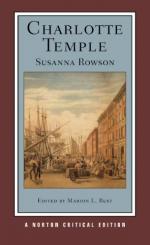“Late as it was when this event took place, my affectionate Lucy insisted on coming to me. ‘What must he feel,’ said she, ’at our apparent neglect, and how shall I inform him of the afflictions with which it has pleased heaven to visit us?’
“She left the care of the dear departed ones to some neighbours who had kindly come in to comfort and assist her; and on entering the house where I was confined, found me in the situation I have mentioned.
“How she supported herself in these trying moments, I know not: heaven, no doubt, was with her; and her anxiety to preserve the life of one parent in some measure abated her affliction for the loss of the other.
“My circumstances were greatly embarrassed, my acquaintance few, and those few utterly unable to assist me. When my wife and son were committed to their kindred earth, my creditors seized my house and furniture, which not being sufficient to discharge all their demands, detainers were lodged against me. No friend stepped forward to my relief; from the grave of her mother, my beloved Lucy followed an almost dying father to this melancholy place.
“Here we have been nearly a year and a half. My half-pay I have given up to satisfy my creditors, and my child supports me by her industry: sometimes by fine needlework, sometimes by painting. She leaves me every night, and goes to a lodging near the bridge; but returns in the morning, to cheer me with her smiles, and bless me by her duteous affection. A lady once offered her an asylum in her family; but she would not leave me. ‘We are all the world to each other,’ said she. ’I thank God, I have health and spirits to improve the talents with which nature has endowed me; and I trust if I employ them in the support of a beloved parent, I shall not be thought an unprofitable servant. While he lives, I pray for strength to pursue my employment; and when it pleases heaven to take one of us, may it give the survivor resignation to bear the separation as we ought: till then I will never leave him.’”
“But where is this inhuman persecutor?” said Temple.
“He has been abroad ever since,” replied the old man; “but he has left orders with his lawyer never to give up the note till the utmost farthing is paid.”
“And how much is the amount of your debts in all?” said Temple.
“Five hundred pounds,” he replied.
Temple started: it was more than he expected. “But something must be done,” said he: “that sweet maid must not wear out her life in a prison. I will see you again to-morrow, my friend,” said he, shaking Eldridge’s hand: “keep up your spirits: light and shade are not more happily blended than are the pleasures and pains of life; and the horrors of the one serve only to increase the splendor of the other.”
“You never lost a wife and son,” said Eldridge.
“No,” replied he, “but I can feel for those that have.” Eldridge pressed his hand as they went toward the door, and they parted in silence.




